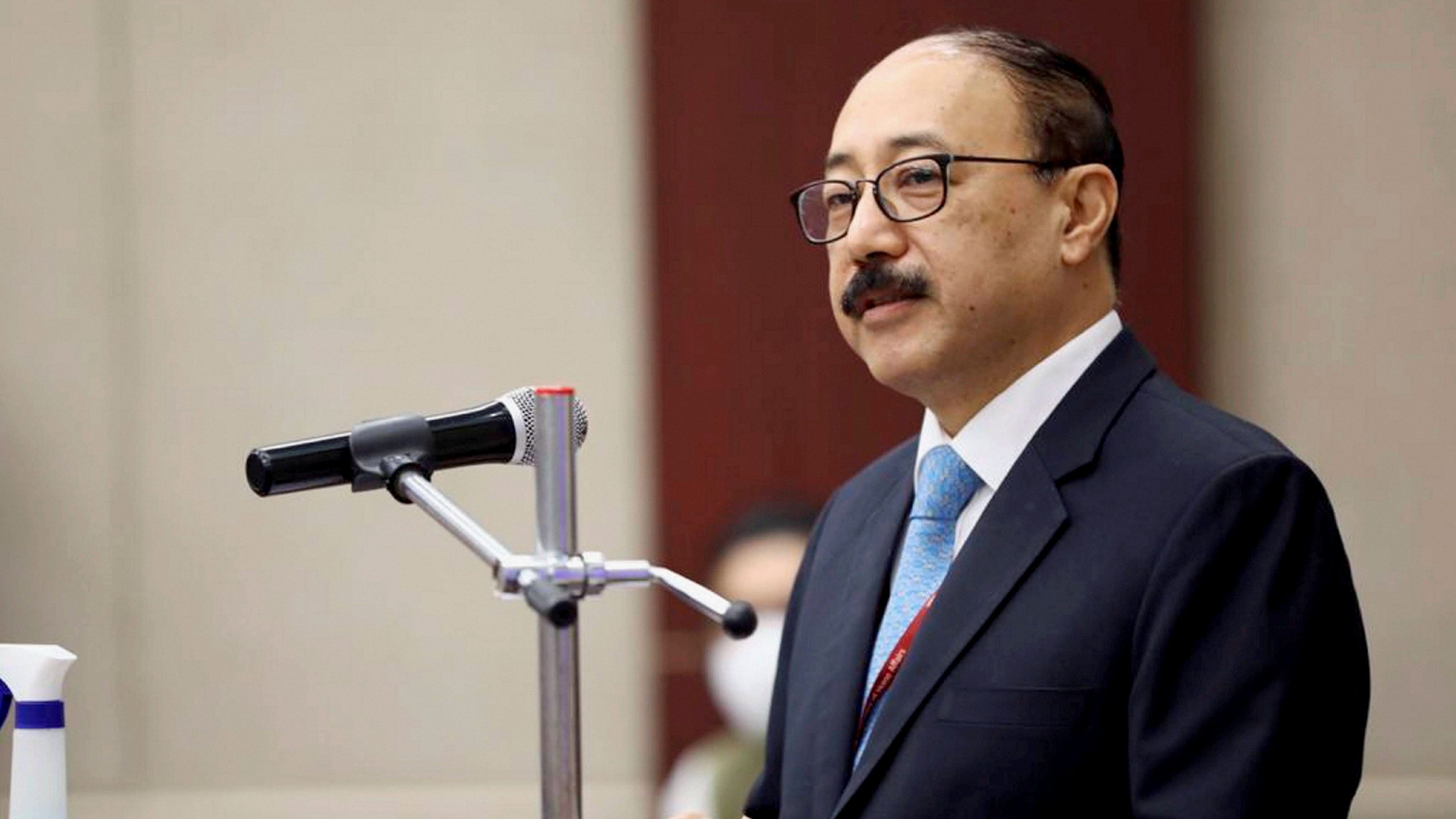
Energy connectivity and trading within the region can prove to be a game changer for India, Harsh Vardhan Shringla, chief coordinator of India's G20 Presidency, said here on Sunday.
The de-congestion of power transmission lines through the narrow Siliguri corridor by routing via Bangladesh, in accordance with a multilateral pact, will particularly benefit the northeastern region, he said.
"Energy connectivity can be a game changer. We (India) have recently come up with the cross-border energy trading policy," Shringla said on the inaugural day of a two-day conclave here on the contribution of the northeastern region to nation-building.
Under the policy, power can be traded between Bangladesh, Nepal, Bhutan and India through corridors in India and Bangladesh, he said.
Shringla said that as a result of the policy, the private sector has made significant investments in Nepal due to which the neighbouring country is now exporting power to India.
This will change the shape of regional relations in the future, he claimed.
India had started selling power to Bangladesh at the beginning of the last decade when the neighbouring country was reeling under an energy crisis, and the supply has increased since then, Shringla said.
The former foreign secretary also highlighted the need for de-congestion of transmission lines along the ‘chicken’s neck' for evacuating excess power from the northeast region.
The narrow corridor through Siliguri in West Bengal that connects the states of the northeast to the rest of the country is referred to as the 'chicken’s neck'.
Excess power from the northeast can be evacuated to the rest of India and also supplied to Bangladesh, he added.
The retired diplomat also pointed out that India is helping in the overall development of its neighbourhood by investing in infrastructure, especially in line with its 'Act East Policy'.
Improved border infrastructure and policies facilitating greater economic interaction have seen improved trade ties with the bordering countries, he maintained.
The growth in trade with neighbouring countries will also ensure a bigger, direct market for the northeast, he added.
Shringla also emphasised the role of cultural and people-to-people connect in boosting the overall growth of the northeastern region and South East Asia.